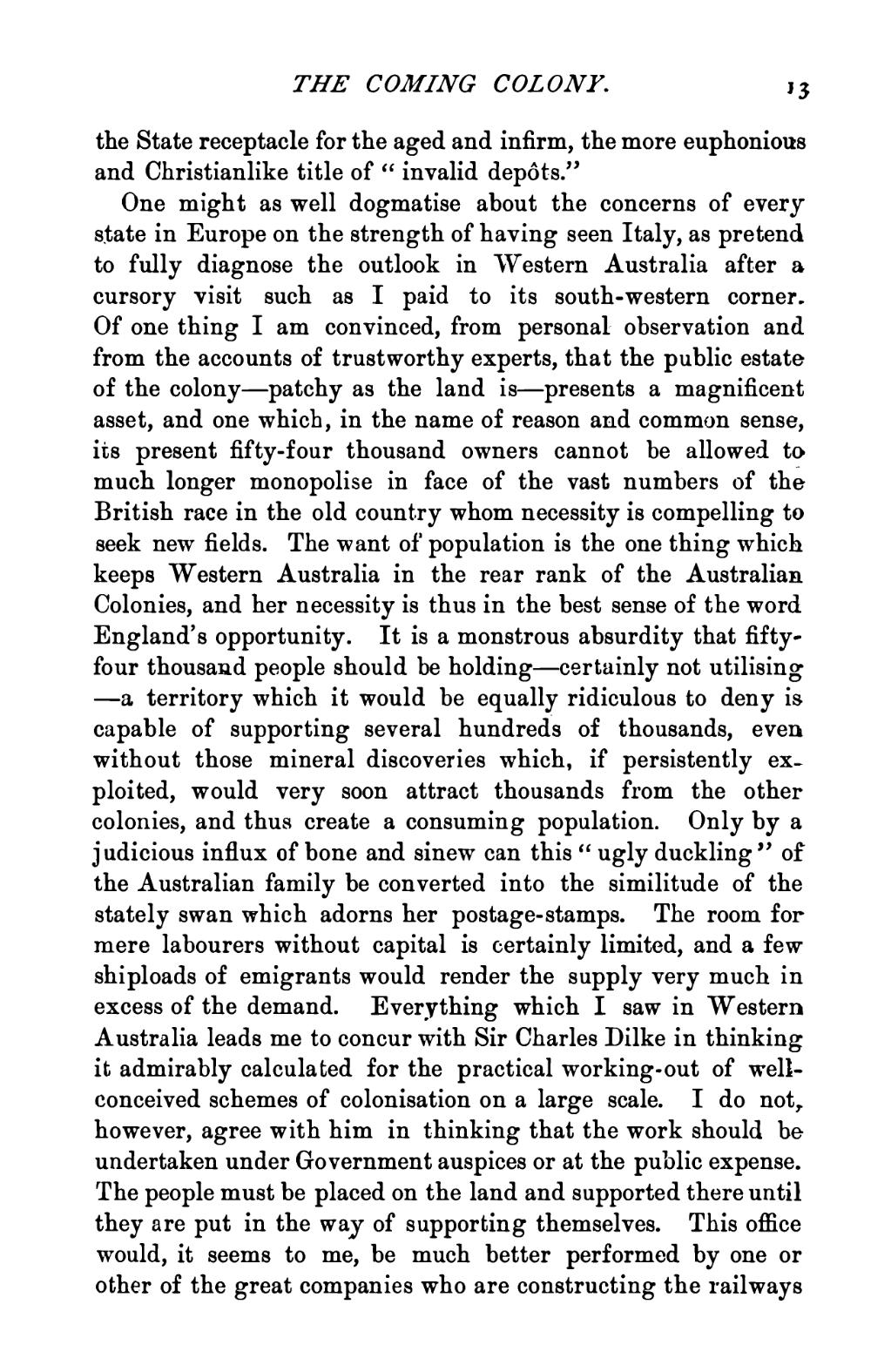the State receptacle for the aged and infirm, the more euphonious and Christianlike title of "invalid depôts."
One might as well dogmatise about the concerns of every state in Europe on the strength of having seen Italy, as pretend to fully diagnose the outlook in Western Australia after a cursory visit such as I paid to its south-western corner. Of one thing I am convinced, from personal observation and from the accounts of trustworthy experts, that the public estate of the colony—patchy as the land is—presents a magnificent asset, and one which, in the name of reason and common sense, its present fifty-four thousand owners cannot be allowed to much longer monopolise in face of the vast numbers of the British race in the old country whom necessity is compelling to seek new fields. The want of population is the one thing which keeps Western Australia in the rear rank of the Australian Colonies, and her necessity is thus in the best sense of the word England's opportunity. It is a monstrous absurdity that fifty-four thousand people should be holding—certainly not utilising—a territory which it would be equally ridiculous to deny is capable of supporting several hundreds of thousands, even without those mineral discoveries which, if persistently exploited, would very soon attract thousands from the other colonies, and thus create a consuming population. Only by a judicious influx of bone and sinew can this "ugly duckling" of the Australian family be converted into the similitude of the stately swan which adorns her postage- stamps. The room for mere labourers without capital is certainly limited, and a few shiploads of emigrants would render the supply very much in excess of the demand. Everything which I saw in Western Australia leads me to concur with Sir Charles Dilke in thinking it admirably calculated for the practical working-out of well conceived schemes of colonisation on a large scale. I do not,. however, agree with him in thinking that the work should be undertaken under Government auspices or at the public expense. The people must be placed on the land and supported there until they are put in the way of supporting themselves. This office would, it seems to me, be much better performed by one or other of the great companies who are constructing the railways
